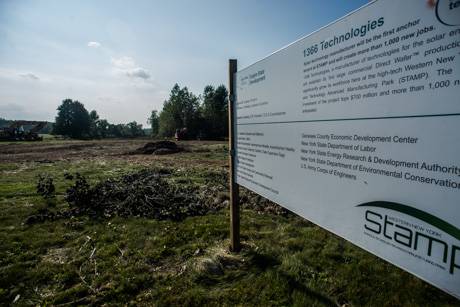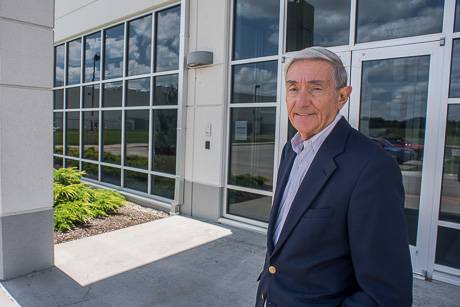Schumer pens letter to federal energy commission urging swift approval of GC agreement to keep STAMP on track
Press release:
U.S. Senate Minority Leader Charles E. Schumer on Monday urged the Federal Energy Regulatory Commission (FERC) to approve the Empire Pipeline Inc.’s revised and extended PILOT (Payment In Lieu Of Taxes) agreement with Genesee County in order to keep an important water infrastructure project on track.
Schumer said that with the agreement now up for renewal, it is essential that FERC approve the extended agreement to finance new water infrastructure at Genesee County’s Science Technology and Advanced Manufacturing Business Park (STAMP), bringing good paying jobs to the Rochester Finger Lakes region and investing in New York State’s critical infrastructure.
“Genesee County’s PILOT agreement is vital to keep water infrastructure construction at STAMP on schedule and put new jobs in the pipeline,” Senator Schumer said. “FERC must act quickly and approve this petition to ensure that the timely construction of new water infrastructure is not held up by bureaucratic red tape.
"This agreement is a win-win for job creation and the hard working people of Genesee County, allowing the Genesee County Economic Development Center to proceed with vital upgrades to the STAMP business park.”
Schumer explained that the original PILOT agreement between Genesee County Economic Development Center (GCEDC) and Empire Pipeline was approved by FERC and implemented in 2007 as part of Empire Pipeline’s investment to construct a new gas compression station in the Town of Oakfield in Genesee County. This agreement is now up for renewal through 2032.
This request does not include any new construction, but is solely an amendment and extension of the original PILOT agreement.
This renewal agreement was approved by Genesee County and Empire Pipeline in 2016 and is currently awaiting final approval by FERC. Funding provided to Genesee County by Empire Pipeline under this PILOT agreement is required by Genesee County Economic Development Corporation (GCEDC) to finance Phase 2 construction of new water lines to serve STAMP and timely action by FERC is needed to ensure the construction timeline is not delayed.
A copy of Schumer’s letter appears below:
Dear FERC Chairman Chatterjee:
I write to request that you take swift action on the Petition (Docket CP06-5, Sub Docket 013) filed by Empire Pipeline Inc. to approve its revised and extended PILOT (Payment in lieu of taxes) agreement with Genesee County, NY, which is necessary to finance new job-creating water infrastructure at Genesee County’s STAMP (Science Technology and Advanced Manufacturing Business Park) business park.
The original PILOT agreement between Genesee County Economic Development Center (GCEDC) and Empire Pipeline was approved by FERC and implemented in 2007 as part of Empire Pipeline’s investment to construct a new gas compression station in the Town of Oakfield in Genesee County. This agreement is now up for renewal through 2032. This request does not include any new construction, but is solely an amendment and extension of the original PILOT agreement. This renewal agreement was approved by Genesee County and Empire Pipeline in 2016 and is currently awaiting final approval by FERC.
Timely approval of this agreement is necessary to ensure that the construction of new water infrastructure, which is crucial to economic development in the region, can proceed on schedule. The $4 million in proceeds paid by Empire Pipeline to Genesee County under this renewal agreement are set to be used to finance new job-creating water line investment in Genesee County. Specifically this funding is required to complete the financing of the Phase 2 construction of new water lines to serve the forthcoming STAMP business park, a 1,250-acre site that Genesee County is transforming into a shovel-ready business park to attract new manufacturing business and jobs. As the Phase 1 water construction is now underway, I request FERC expeditiously schedule this Petition for action in order to enable the Genesee County Economic Development Center to proceed on its Phase 2 schedule without delay.
Thank you for your attention to this request.
Sincerely,
Charles E. Schumer





